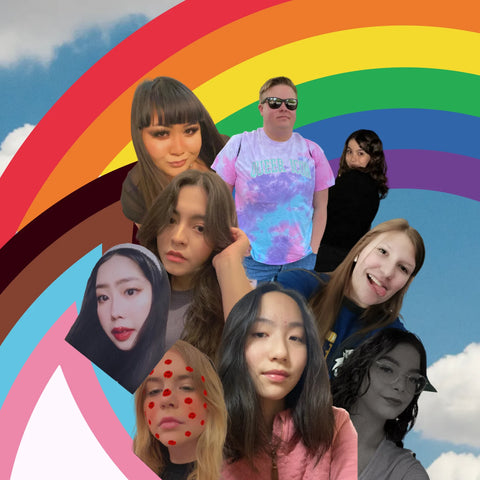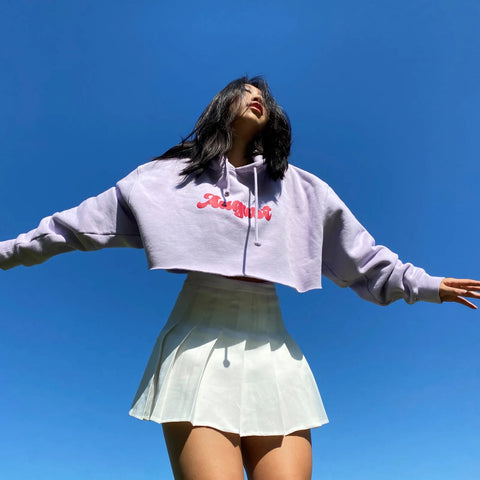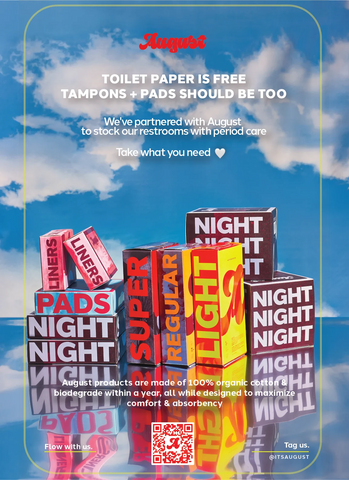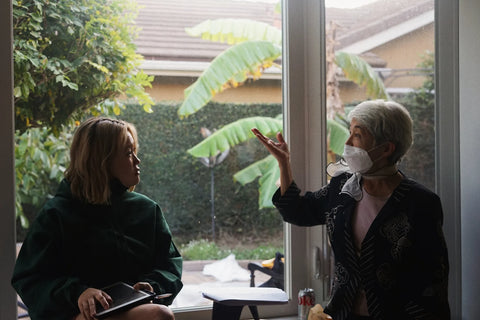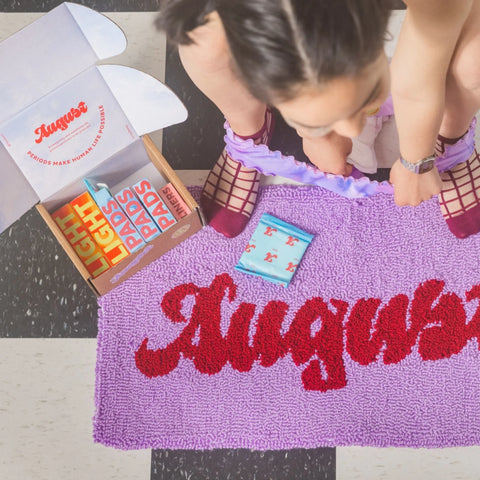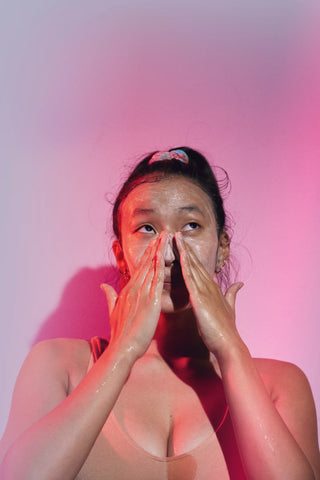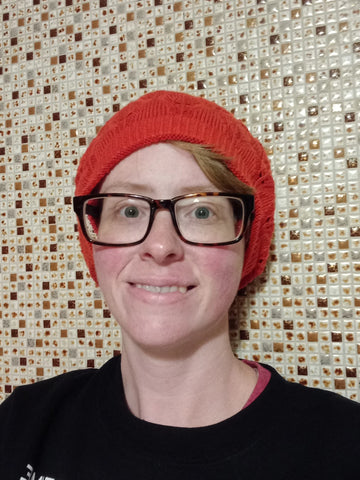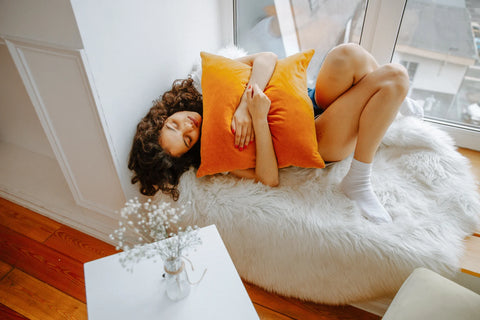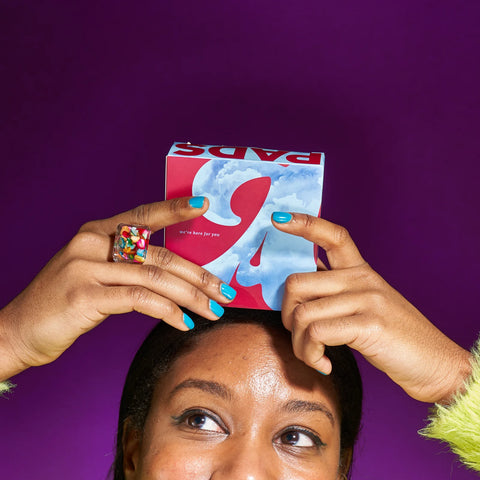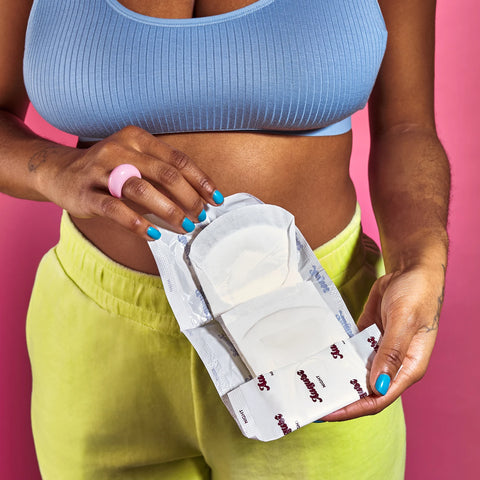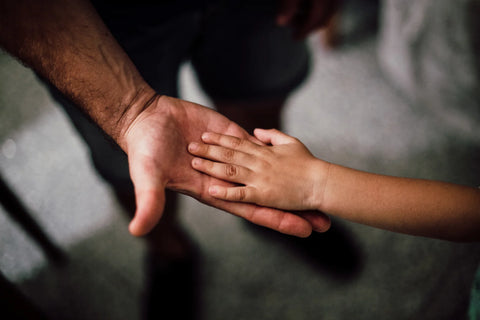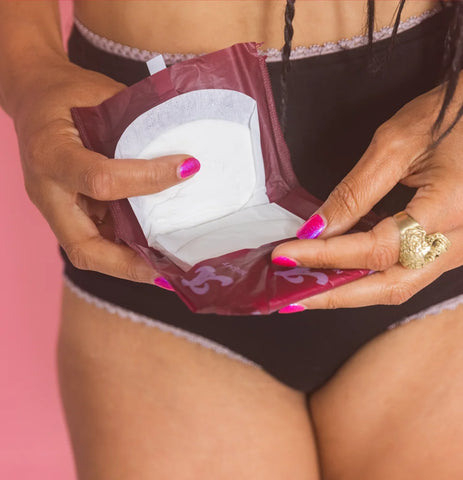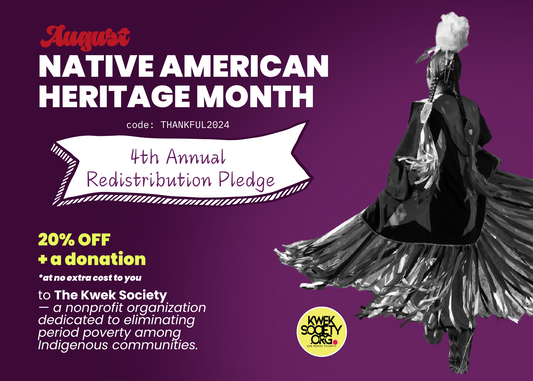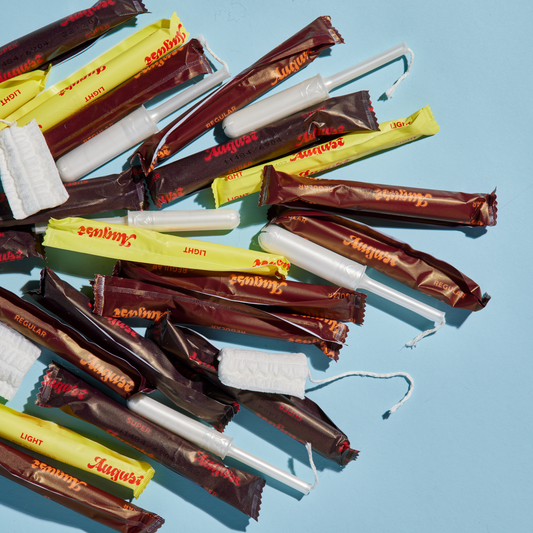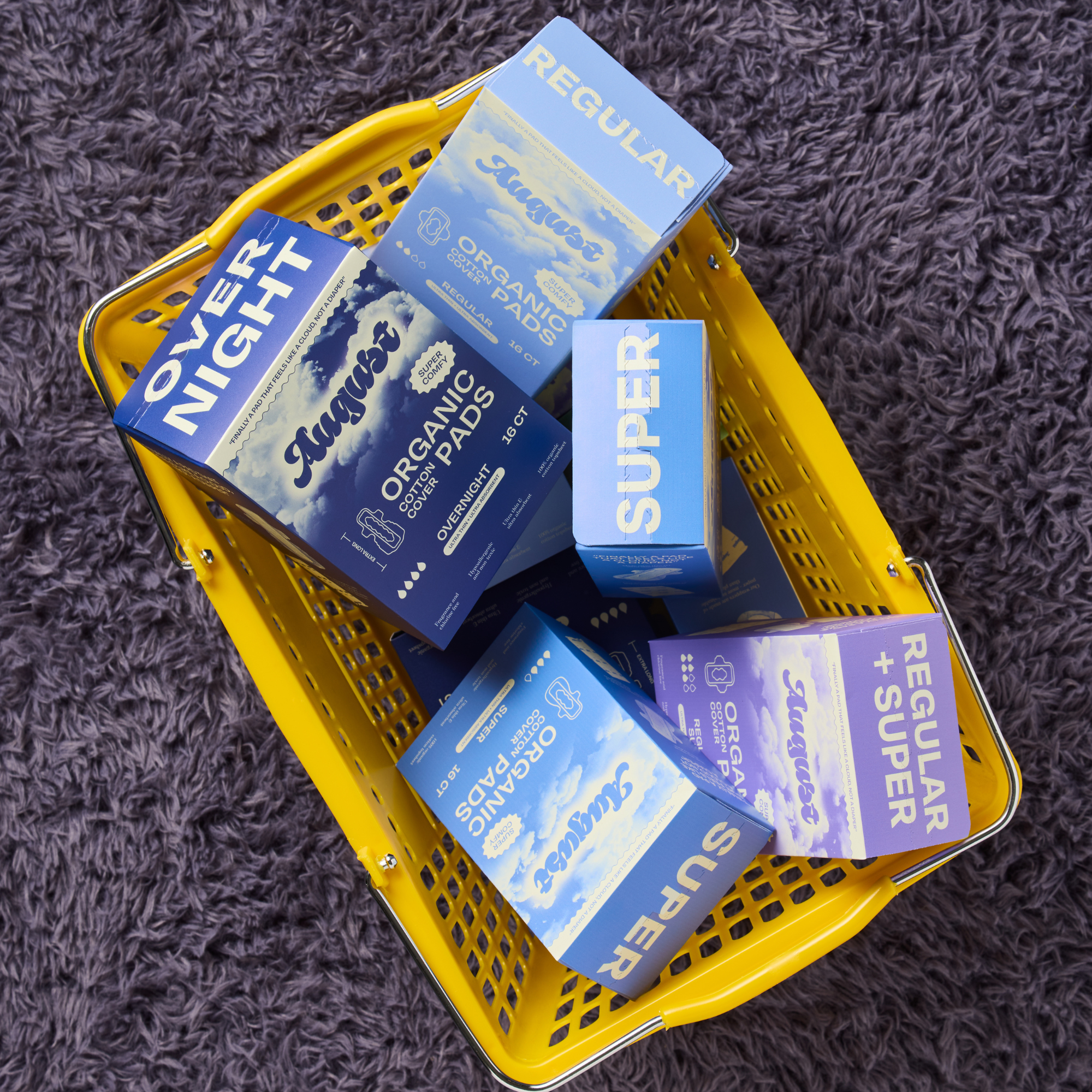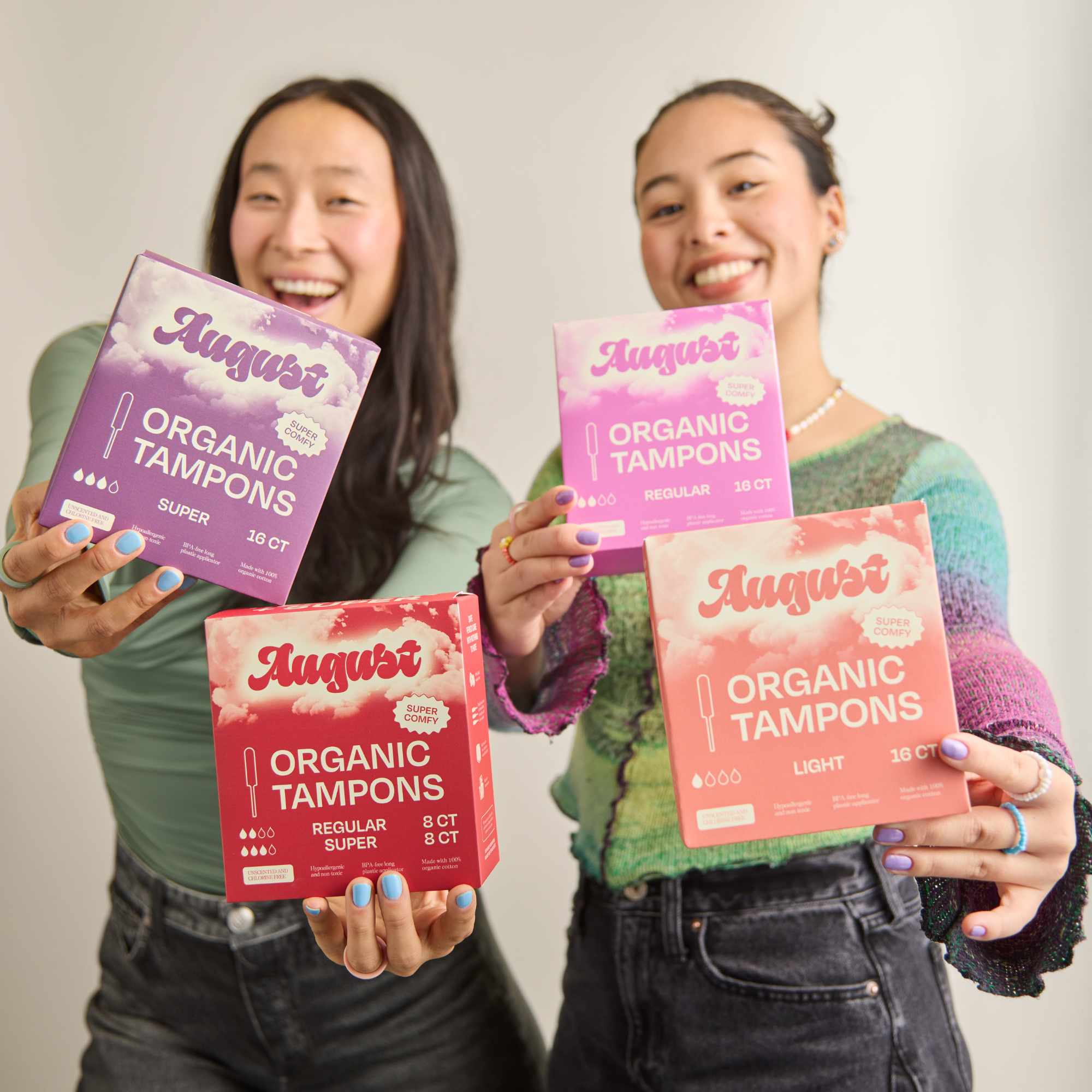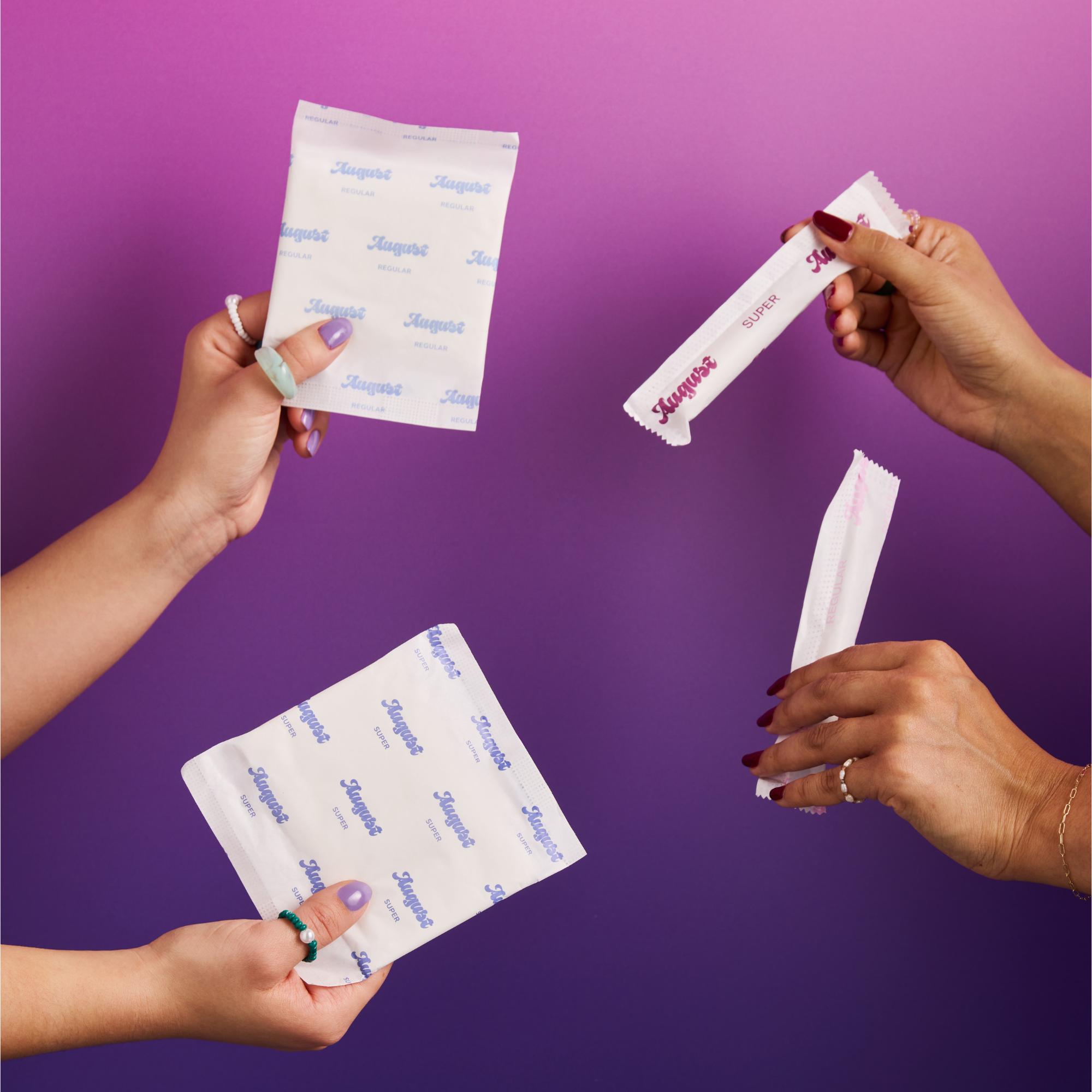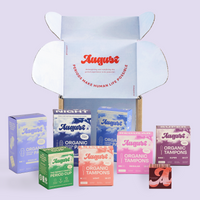What inspired you and ignited your passion to start the Stardust app? What is the mission of stardust?

I was searching for a cycle tracker years ago and found all of them to be super clinical, cringey, ugly, and only about getting pregnant. Most of the big ones are owned by teams of men who are primarily interested in selling user data. I come from a design background and love building and improving things, so I made one! This mission of Stardust is to make cycle tracking a fun, beautiful, and interesting experience.
How does this app work & how is it helpful for menstruators?

Stardust is a period tracker that syncs your cycle with the moon, offering daily insights into your hormones, updates on the moon’s phases, and additional features like symptom tracking and syncing with friends. It’s not just about your period or ovulation days, but celebrating the beauty and magic of every day of your cycle.
A lot of menstruators know that there are good weeks and bad weeks during cycles, but to see the science behind this, to understand what hormones are doing, and to know what cycle phase you’re in brings a whole new level of body awareness and empowerment.
What is the link between astronomy and periods?

The moon and the menstrual cycle (on average) run parallel, each lasting an average of 29.5 days long. The moon impacts so much of what happens here on earth, and governs the behavior and reproduction of plants, animals, the ocean’s tides, and moisture in soil. The link between astronomy and periods embraces the idea that we also follow this natural pattern. I often say that the link between the menstrual cycle and the moon is the ultimate example of how our bodies reflect the natural world.
Do our menstrual cycles follow the lunar calendar?
The average menstruator gets 13 periods a year, and there are 13 moon cycles in a year. Like the moon, our bodies are in a constant state of change, so your cycle may start on a new moon, full moon, waxing moon, or waning moon, and this can also change over time. In our app, the moon phase that aligns to your period determines what type of “witch” you are. For example, a “red moon witch” menstruates on the full moon and has a different experience syncing with the moon than a “white moon witch” who menstruates on a new moon.
What does my astrological sign tell me about periods?

Your astrological DNA determines so much of how you experience life. For example, your sun sign speaks to your self-expression and core identity, while your moon sign represents how you process emotions and find comfort. This all comes into play during your period, too! Your astrological signs (like these ones) can even affect your PMS style- this will be coming soon to the app this summer :)
A lot of the period/astronomy discussion is in indigenous culture, can you share more about this?
Indigenous cultures all over the world emphasize the importance of conserving and living in accordance with nature—including lunar cycles. In many indigenous cultures, the moon is connected with divine feminine energy: the connection to water and soil (necessary for life), night, rest and nourishment, change as a constant. And in many indigenous cultures, menstruation is viewed as a sacred and powerful event. It’s a part of nature. My hope is for Stardust to help menstruators celebrate their cycles as a natural phenomenon instead of something gross that should be hidden.
What was your first period experience like? Any advice to younger menstruators?

I got my period the night before my 13th birthday. The first person I told was my babysitter, who convinced me to do this family tradition where you take your menstrual blood, put it on your face (yup) and run around the house. She told me if I didn’t do this I would end up with bad skin so I did it! I can’t remember if anyone saw me…I might’ve blocked it out from the embarrassment.
What does it mean to be a founder to you?
Being a founder means having the confidence to call your idea a business. It means that you’ve decided to channel your time and energy to pursue something you believe is worthwhile.
How are you changing the way people view the traditional “founder” stereotype?
I think we’ve come a long way, especially in the last few years, from the traditional tech founder stereotype of the Stanford-educated white male wearing a fleece vest who likes to “move fast and break things.” My “founder” style is to move slowly, observe, adjust, reflect and celebrate.
How can more women become entrepreneurs? Being in a predominantly male space, how are you seeing the representation change?
I think it’s insane that the period and femtech space is still so male-dominated. It won’t really change until VCs start funding more ventures led by women and nonbinary founders. There are so many brilliant businesses and ideas that just need the right support, connections, and capital to scale.
As a female founder, what are some roadblocks you have encountered? What advice would you give to someone new in this space?
I hit so many roadblocks trying to convince people that Stardust would work. I thought I could raise money on the idea alone, but then discovered I needed proof of concept. After I had proof of concept, investors wanted to see market traction. After I had market traction people still didn’t believe the idea was defensible or could be revenue generating. I allowed this feedback to fire me up instead of getting me down and each step of the way eventually met the right people who “got it.” If everyone loves your idea it’s probably not innovative enough.
What specific advice would you have for young women who would like to become an entrepreneur?
Learn by example. Find people who inspire you, and read and listen to others’ experiences. It can be a lonely and emotional journey, but it’s also extremely rewarding. Whatever you do, don’t assume that being your own boss is an easier way to work. It’s often much harder! It f comes with more responsibility than working for someone else. And don’t quit your regular job until you can really support yourself.
Knowing what you know now, is there anything you would have done differently when you were first starting out? What have you enjoyed most about starting your own company?
I regret allowing myself to get burned out repeatedly. I definitely subscribed to hustle culture and developed unhealthy (and frankly, patriarchal) habits around work that caused me a lot of stress.
What I’ve enjoyed most is seeing my ideas turned into something tangible and tactile. It never gets old.
What resources have been especially helpful to you as you’ve built your company?
Building a company often means doing a lot of the work yourself, and there are so many great virtual learning resources to learn or refine skills. I used YouTube a lot for software tutorials and educating myself on UX design, as well as learning photoshop and how to code.
Based on your experience, what’s the biggest takeaway you can give to other Founders?
Learn how to manage your energy really well. Know when to slow down and rest or stop altogether so that you can work efficiently the next day or the next week. Being aware of your cycle can really help with this. I like to take it easy the week of my period, go full force on production the following week, hold meetings the week I’m ovulating and then reflect, edit and clean things up during the luteal phase of my cycle.

